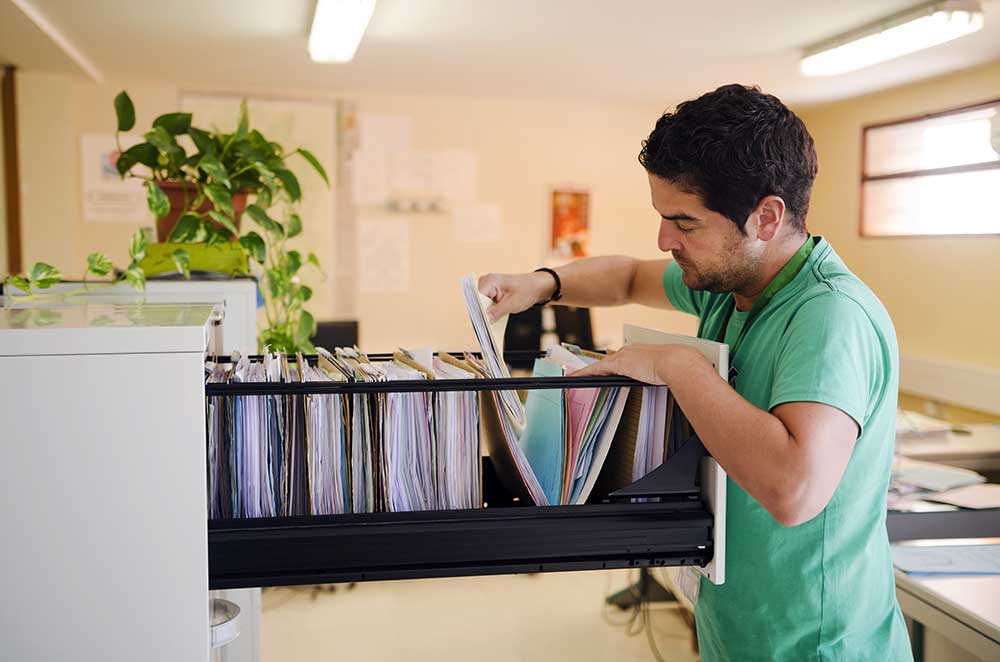Disclaimer: The information on our website is provided for general information purposes only. We make no representations or warranties of any kind, express or implied, about the completeness, accuracy, reliability, suitability or availability with respect to the website or the information contained on our website for any purpose. Any reliance on such information is therefore strictly at your own risk and we are not liable for any damages or losses arising out of or resulting from your reliance on any information contained on our website.
An office clerk does a variety of tasks from filing records to handling communications over the phone, email, or fax. Additionally, their duties often change daily depending on the needs of their employer. General office clerks can be found working in healthcare facilities, government offices, schools, and other places of industry. Next, watch a video to learn more about what an office clerk does.
How to Become an Office Clerk
A high school diploma or the equivalent is usually expected for a general office clerk to gain employment. It is common for the employee to learn job skills while working on the job and training normally lasts about 1 month. On-the-job training includes learning office procedures, use of office equipment, required phone etiquette, and perhaps computer applications. General office clerks may have opportunities for advancement to executive secretary or executive administrative assistant with work experience and knowledge of computer applications.
Job Description of an Office Clerk

Office clerks typically provide information to the public and employees by answering the phone, transferring calls, and taking messages. They also sort and deliver incoming mail and send outgoing mail. Additionally, they are responsible for scheduling appointments and receiving visitors or customers. They may type documents, edit routine memos, or format reports. He or she may copy, file, update paper and electronic documents, and prepare and process bills or other office documents.
A general office clerk would collect information and perform data entry. Some must enter data into computers or perform some tasks using software applications. It is common for the employee to use fax machines, photocopying machines, and scanners. The variety of tasks of the general office clerk depends on the type of office he or she works in.
Office Clerk Video Transcript
Offices everywhere, whether they’re in a school, a government agency, or a hospital, rely on office clerks to help keep them running. General office clerks perform a variety of clerical tasks from answering telephones to typing documents and filing records. Rather than performing a single specialized task, these clerks have responsibilities that change with the needs of the employer, their duties may even change daily.
Some clerks enter data into computers or use software applications to perform other tasks. They also frequently use a variety of office equipment such as photocopiers, scanners, and fax machines. A clerk’s specific duties depend on the office they work in. For example, a general office clerk at a college or university may process college applications while a clerk at a hospital may file and retrieve medical records.
Most clerks work in an office setting full time, but part-time positions are not uncommon. Office clerks usually learn their skills while on the job. Their training typically lasts around one month and may include instructions on office equipment, procedures, and proper phone etiquette. Most office clerks need a high school diploma or equivalent. For those who aren’t familiar with word processing and spreadsheet software, computer courses may be helpful.
Article Citations
Bureau of Labor Statistics, U.S. Department of Labor, Occupational Outlook Handbook, General Office Clerks.
National Center for O*NET Development. 43-9061.00. O*NET OnLine.
The career video is in the public domain from the U. S. Department of Labor, Employment and Training Administration.

